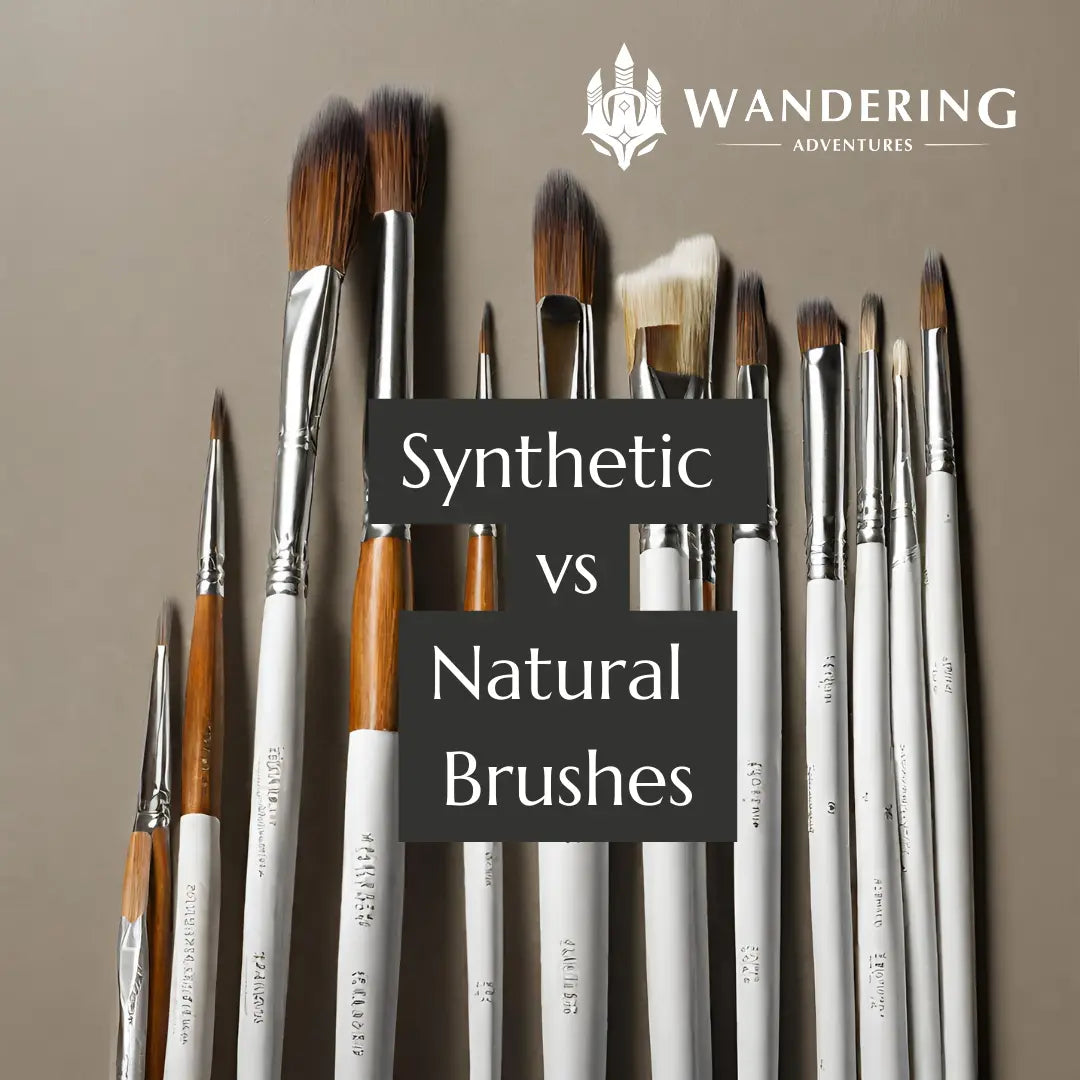Synthetic vs Natural Brushes For Miniature Painting

As mini-painters, we have a lot of options out there at our disposable for tools that we get to use. From the numerous paint lines, to a plethora of brushes we are always considering whats works for us.
Today I wanted to look at the difference between synthetic vs natural brushes and whether or not it matters for mini-painting.
Bristle Characteristics:
- Synthetic Brushes:
- Typically have stiffer bristles.
- Can be suitable for precise detailing and fine lines.
- Well-suited for acrylic paints, as they do not absorb as much paint, allowing for better control.
- Natural Brushes:
- Have softer bristles, which can be advantageous for blending and smoother applications.
- Often preferred for oil-based paints.
- Good for dry brushing techniques and layering.
Paint Absorption:
- Synthetic Brushes:
- Tend to absorb less paint, making them suitable for controlled applications.
- Well-suited for layering and fine details.
- Natural Brushes:
- Absorb more paint, which can be advantageous for certain techniques like glazing and washes.
- Provide a smoother application when blending colors.
Durability:
- Synthetic Brushes:
- Generally more durable and resistant to damage from solvents or harsh cleaning agents.
- May maintain their shape for a longer period.
- Natural Brushes:
- Can be more delicate and require gentler care to prevent damage.
- Prone to wear and tear over time, especially with the use of solvents.
Application Techniques:
- Synthetic Brushes:
- Well-suited for controlled, precise work such as outlining, detailing, and base coating.
- Good for stippling and dry brushing techniques.
- Natural Brushes:
- Ideal for blending, layering, and creating smooth transitions between colors.
- Suitable for techniques that require softer brush strokes.
Cost:
- Synthetic Brushes:
- Often more affordable than natural brushes, making them a cost-effective choice for beginners.
- Natural Brushes:
- Can be more expensive due to the use of high-quality animal hair.
Sustainability:
- Synthetic Brushes:
- Considered more environmentally friendly as they do not involve the use of animal products.
- Suitable for those who prefer cruelty-free and vegan options.
- Natural Brushes:
- Involve the use of animal hair, which may raise ethical concerns for some users.
- Some natural brush manufacturers claim to source their hair ethically.
So as you can see, there is some difference. I think the big ones to consider are the stiffness of the synthetics versus the flexibility of the natural. The synthetics are good for detail and line work, whereas the natural are good for washes and glazes. There is also the durability to consider, if you use them a lot or use products to clean your brushes.
Ultimately the best mix seems to be using the right brush for the right situation, which is in general a good rule.
Citadel Paints make great lines of both synthetic and natural brushes that are worth checking out a good price point.
We also carry some amazing AK Interactive Synthetic brushes, which I regularly use myself.
Thanks everyone


